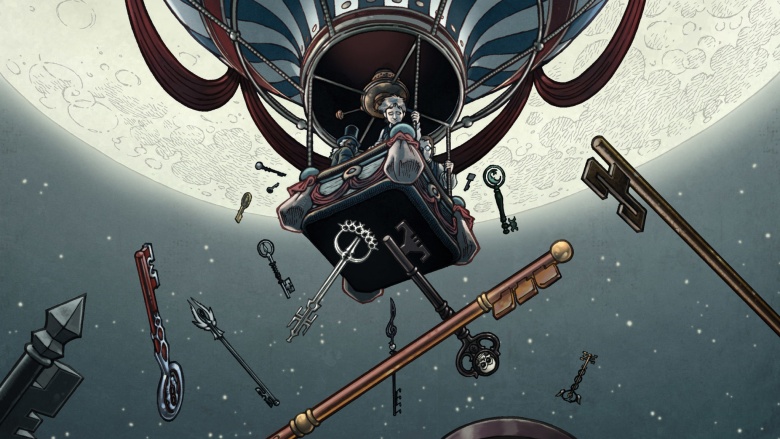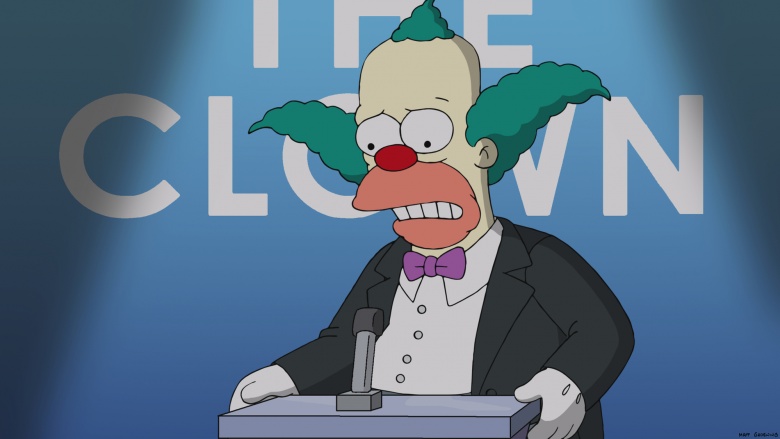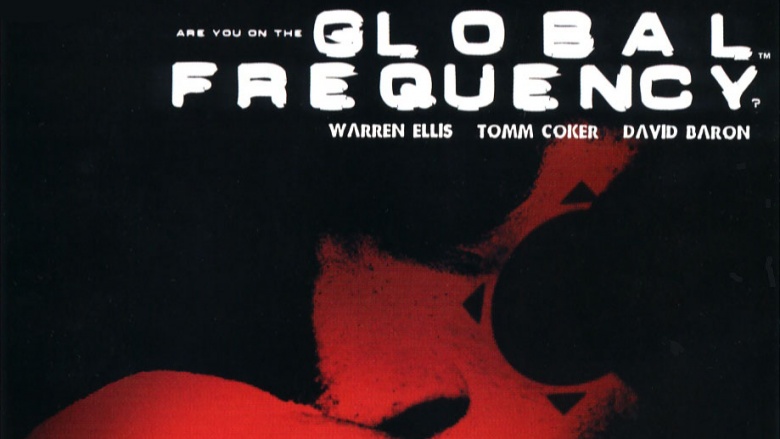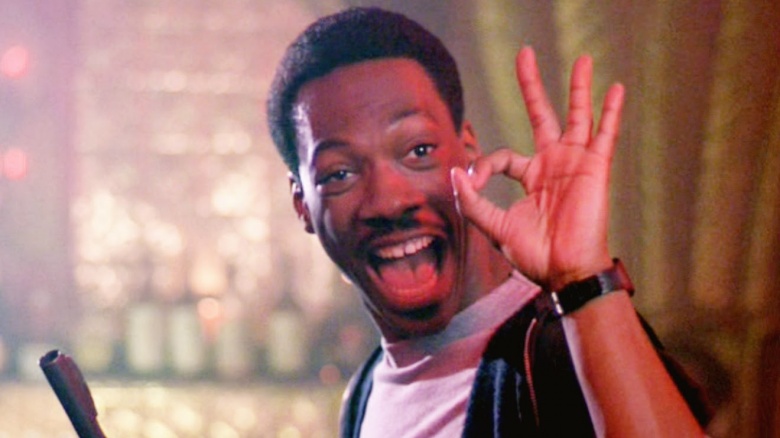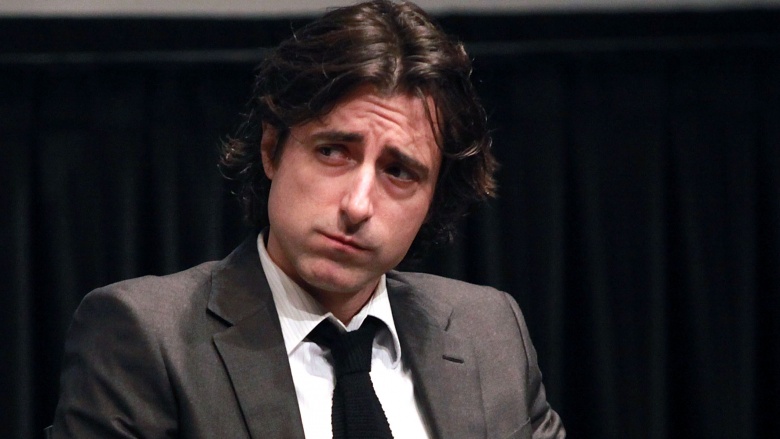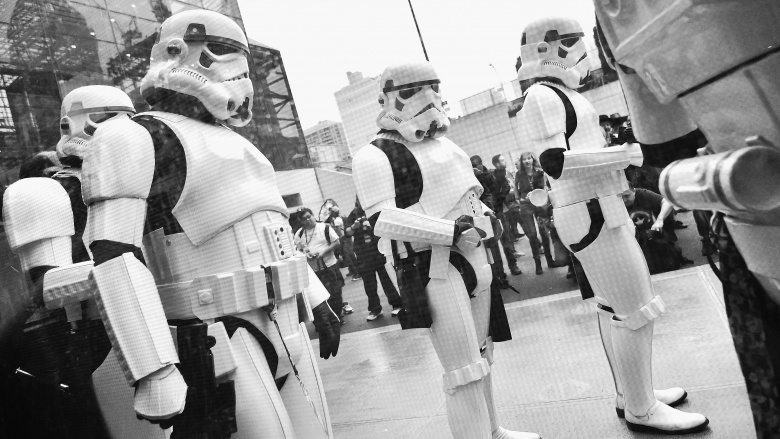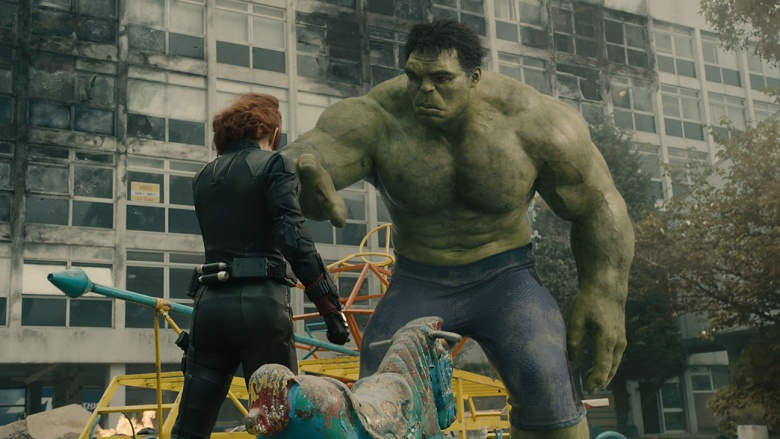Canceled TV Shows That Would Have Been Huge Hits
Some of the most popular television shows—Firefly, Freaks and Geeks, My So-Called Life—only last for a single season. Others start strong but run out of steam long before the finish line (Dexter, we're looking in your direction). But what about the shows that don't even make it out of the gate? With superior creative teams, strong premises, and ties to popular franchises, these ten television shows would've been guaranteed hits—if only someone had put them on the air.
Buffy the Animated Series
Buffy the Vampire Slayer lasted for seven seasons—and its spinoff, Angel, endured for another five—but despite producers' best efforts, the Buffyverse has been quiet since 2004. A series focused on new vampire slayers called Slayer School never made it past the pitch stage. A TV movie, Spike (based on a script by the character's portrayer, James Marsters), languished in development hell for years—and now Marsters is too old for the role. An ill-advised Buffy reboot quickly fell apart, and while Buffy creator Joss Whedon claims that the Giles-centric spin-off Ripper is still coming, he's been saying that since 2001.
And yet, despite all odds, Buffy the Animated Series—a children's cartoon that takes the Scoobies back to their high school days—almost made it to series. Whedon and his staff wrote a handful of scripts and commissioned a four-minute pilot featuring voice work from virtually every member of Buffy the Vampire Slayer's main cast (with the notable exception of Buffy herself, Sarah Michelle Gellar). The material looked promising, but Whedon's insistence on securing high-quality (and expensive) animation pushed costs too high. Eventually, executive producer Jeph Loeb and artist Eric Wight adapted some of the material into a Buffy the Vampire Slayer comic book, but the resurrection was short-lived: the journey into Buffy's animated past only lasted for a single issue.
Locke & Key
After Rendell Locke is murdered, his wife Nina and their three children—Tyler, Kinsey, and Bode—move to the Keyhouse, a mysterious mansion in a quiet New England town. But the Keyhouse holds many secrets, and before long, the Locke children find themselves battling over a collection of mysterious keys that give their owners special abilities—including the power to end the world.
That's the premise of Joe Hill and Gabriel Rodriguez's Locke & Key, a spooky and exciting comic that would make a great a television show—that's what Dreamworks thought, anyway. In 2010, Dreamworks hired Fringe and Star Trek scribes Alex Kurtzman and Roberto Orci to adapt Locke & Key for television. The resulting pilot starred Lord of the Rings' Miranda Otto, Nick Stahl, and former boy band member Jesse McCartney. Steven Spielberg served as executive producer.
That's a killer lineup, but despite the crew's pedigree (not to mention a packed screening at Comic-Con International, where the pilot received a standing ovation), Fox passed. So did MTV. Still, there's good news for Locke & Key fans: not only was it recently adapted into a radio drama starring geek icons Tatiana Maslany, Haley Joel Osment, and Kate Mulgrew, but comic publisher IDW is testing the TV waters again with a new pilot written Locke & Key's co-creator, Joe Hill.
Krusty the Clown
Among The Simpsons' numerous accomplishments, one stands out: the show has been running for close to 30 years and it's yet to produce a single spinoff series.
Not that the show's producers haven't tried. Phil Hartman supposedly wanted to make a live-action TV movie starring Troy McClure, but that project was derailed by Hartman's early death. Some Simpsons writers briefly discussed an anthology-style series inspired by the episode "22 Short Films About Springfield," but decided that they didn't have enough writers to pull it off. In a season 8 episode, "The Simpsons Spin-Off Showcase," The Simpsons' staff revealed fictional pilots for potential spinoffs like "Chief Wiggum, P.I." and "The Love-matic Grampa."
But in the Simpsons' early days, a live-action series about Krusty the Clown almost escaped development hell. Simpsons creator Matt Groening wrote a script and Dan Castellaneta, who voices Krusty, Homer, and many other Simpsons characters, was all set to star. However, Groening had trouble translating The Simpsons' unique voice into the real world (one gag, involving beavers gnawing through Krusty's stilted house, was deemed prohibitively expensive for live-action TV), and eventually Groening gave up on Krusty and made Futurama instead.
Global Frequency
In 2005, the fledgling TV network the WB (now known as the CW) commissioned a television show based on Warren Ellis' sci-fi action series Global Frequency, which details the adventures of a covert intelligence agency tasked with defending Earth from apocalyptic threats. A pilot was produced, but the WB decided not to order the show to series. That should have been the end.
It wasn't, thanks to the BitTorrent file-sharing software. In November 2004, BitTorrent file transfers made up a third of all internet traffic, and when the Global Frequency pilot leaked on the network less than a year later, it was an immediate hit. Fans downloaded the Global Frequency pilot hundreds of thousands of times, creating a rabid fanbase for a show that never aired. Warren Ellis and executive producer John Rogers condemned the leak but encouraged newfound fans to spread the word, if not the Global Frequency pilot itself.
Despite Rogers and Ellis' best efforts, Global Frequency's newfound fame didn't rescue the series—in fact, the leak might have doomed the project entirely. In a statement, Warner Bros. warned viewers that "copyright infringement is not a productive way to try to influence a corporate decision." Rogers reportedly met with WB executives to discuss Global Frequency's future, but to no avail. "It's my current understanding that the BitTorrenting of Global Frequency has rendered it as dead as dead can get as a TV series," Ellis said. "It seems that people in high places did not take kindly to the leak."
Beverly Hills Cop
Eddie Murphy hasn't starred in an ongoing television show since 2001, when he voiced Thurgood Stubbs in the animated sitcom The PJs, and hasn't appeared as a regular cast member on a live-action program since 1984, when he concluded his breakout tenure on Saturday Night Live. So when CBS announced that Murphy would return to television as Axel Foley, arguably his most famous character, in a new Beverly Hills Cop series? It was a big, big deal.
Too big of a deal, as it turns out. The Beverly Hills Cop pilot did well with test audiences, but Murphy reportedly overshadowed the main cast, including lead actor Brandon T. Jackson. That was a problem for producers, especially since Murphy was only scheduled to appear in the pilot. CBS executives weren't comfortable making the show without Murphy in a recurring role and canceled the whole thing.
Still, this may not be the end of the road for Axel. Test audiences' embrace of Beverly Hills Cop sparked interest in a cinematic sequel, which is currently being developed by longtime Murphy collaborator Brett Ratner.
The Corrections
With a bestselling novel as its foundation, a critically acclaimed writer and director at the helm, the backing of prestige-series juggernaut HBO, and one of the best casts ever assembled for television (Maggie Gyllenhaal, Ewan McGregor, Diane Wiest, Rhys Ifans, Greta Gerwig, and Chris Cooper were all set to star), The Corrections seemed like a surefire hit.
So what happened? Showrunner Noah Baumbach—who was nominated for an Oscar for his 2005 film, The Squid and the Whale—blames his own inexperience with TV. Baumbach is an accomplished filmmaker, but he hadn't worked in television before The Corrections. As a result, Baumbach's take on Jonathan Franzen's novel was "too complex" to work as a television series, and Baumbach realized that he wasn't up to "the challenge of looking at something over a long period of time, that was ongoing and had no end."
The show was also prohibitively expensive, even for a premium network like HBO. "It was the kind of show that most people would do for two cents," Baumbach said, "and we were spending what Game of Thrones spends." Baumbach never finished the pilot, and the project was abandoned.
Star Wars: Underworld
Revenge of the Sith might've capped off George Lucas' controversial Star Wars prequel trilogy, but it wasn't the end of Lucas' plans for the Star Wars universe. In 2008, Lucas launched Clone Wars, an animated series set between Attack of the Clones and Revenge of the Sith, and assembled a crack team of writers and producers to develop a live-action series called Star Wars: Underworld.
From 2008 to 2010, Lucas and his writing team cranked out 50 scripts—about two seasons' worth of material. According to Lucasfilm producer Rick McCallum, Underworld was a dark and gritty crime drama reminiscent of The Godfather and Deadwood. Game developer Corey Balrog, who read some of the scripts, claims that a tragic love story between The Emperor and a "hardcore gangster" was a major plot thread.
Reportedly, Lucas wanted to hold off filming until television special effects were advanced enough to support his vision, and Underworld was put on hold. Then Disney happened. In 2012, the studio bought Lucasfilm and Star Wars from Lucas for a cool $4 billion and immediately started working on its own set of Star Wars projects, including The Force Awakens, Rogue One, and Star Wars: Rebels. While Lucasfilm president Kathleen Kennedy claims that Underworld might still see the light of day, at the moment, the property is dead and buried.
Profit
Before Tony Soprano, Dexter Morgan, and Walter White, there was Jim Profit, a junior executive at Gracen & Gracen played by Heroes' Adrian Pasdar who was willing to do anything to get ahead. Blackmail? Corporate espionage? Murder? On Profit, it's all fair game.
Critics loved Profit. Audiences? Not so much. While Jim Profit doesn't seem any worse than Don Draper or Frank Underwood, in 1996, Profit's amoral antihero was too dark for audiences, and the show tanked in the ratings. Audiences and Fox affiliates complained about the show's edgy content, which included regular drug use and a smattering of incest. Members of the business community felt (correctly) that Profit portrayed them in a negative light. Fox pulled the plug after four episodes, and didn't release the full series on DVD until nearly ten years later.
Delirium
Sometimes, a movie or a television show is a hit before it even airs. Both Twilight and 50 Shades of Grey, which were based on bestselling books, had rabid fanbases before a single frame was filmed. Fox was clearly hoping to tap into that same kind of feverish devotion with Delirium, a series based on Lauren Oliver's dystopian YA trilogy.
With a Hunger Games-like premise, a built-in audience of loyal readers, and a popular young actress (Emma Roberts) in the lead role, Delirium's director, Rodrigo Garcia, called the pilot "a shoo-in to become a series." It wasn't. Fox passed for unknown reasons, picking up Sleepy Hollow and Almost Human instead.
Still, there's some justice for Delirium fans. While Almost Human only lasted for a single season and Sleepy Hollow continues to struggles in the ratings, a short-run airing of the Delirium pilot on Hulu made waves, thanks mostly to the books' passionate fans and Emma Roberts' massive social media presence.
The Incredible Hulk
Angry that you never got to see Guillermo del Toro's take on the Incredible Hulk? Blame Joss Whedon.
In 2010, shortly after the Marvel Cinematic Universe burst onto the big screen with Iron Man, del Toro—who'd proved his comic book bonafides years before as the director of Hellboy and Blade—approached Marvel about creating a television show based on the publisher's iconic green goliath. As Jeph Loeb, Marvel's head of television, put it, "When Guillermo del Toro comes and wants to do a show about your pinkie, you are going to want to do it." The studio immediately put the series into development.
Unfortunately for Hulk fans, then The Avengers came along. While del Toro was busy putting together a series outline, Whedon and Mark Ruffalo were bringing Bruce Banner and his rage-filled alter-ego back to the big screen. When The Avengers hit theaters in 2012, Ruffalo's Hulk stole the show, and Marvel started having second thoughts about del Toro's proposal.
Ultimately, Loeb says, "Once we saw what Joss Whedon and Mark Ruffalo were creating in The Avengers, that was a better solution." Loeb and Whedon decided to focus on Agents of S.H.I.E.L.D.—which, unlike del Toro's proposed show, is part of Marvel's interconnected universe—for Marvel's television debut, permanently stranding del Toro's Hulk in development limbo.

